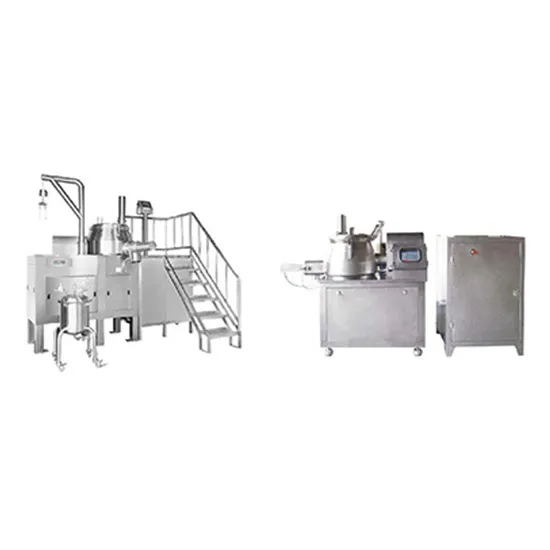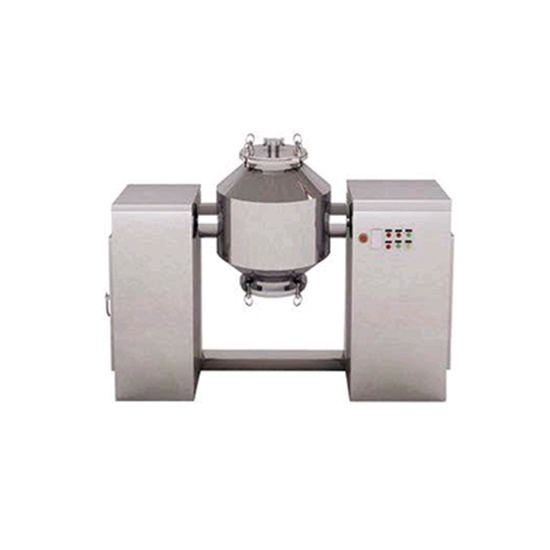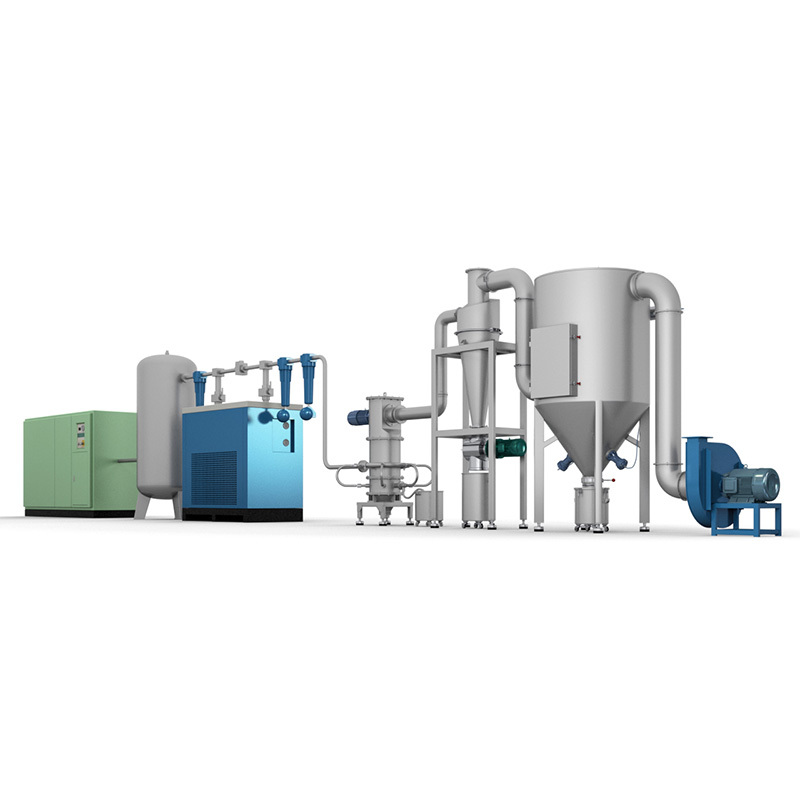NEWS
Demystifying Grinding Machinery: A Closer Look at Industrial Grinders
Sep 30,2023
Table of Contents:
1. Understanding Industrial Grinders
2. The Importance of Industrial Grinders
3. Types of Industrial Grinders
3.1 Angle Grinders
3.2 Bench Grinders
3.3 Cylindrical Grinders
3.4 Surface Grinders
4. Applications of Industrial Grinders
4.1 Metalworking
4.2 Woodworking
4.3 Construction
4.4 Automotive
5. Benefits of Industrial Grinders
5.1 Precision and Accuracy
5.2 Time and Cost Efficiency
5.3 Versatility and Adaptability
6. Key Considerations when Choosing an Industrial Grinder
6.1 Power and Speed
6.2 Disc Size and Type
6.3 Safety Features
6.4 Durability and Maintenance
7. FAQs about Industrial Grinders
7.1 What safety precautions should be followed when using an industrial grinder?
7.2 Can an industrial grinder be used for sharpening tools?
7.3 How often should the discs of an industrial grinder be replaced?
7.4 What are some common maintenance tips for industrial grinders?
7.5 Are there any specific certifications or standards for industrial grinders?
8. Conclusion
Industrial grinders are highly versatile machines used in various industries for grinding and shaping materials. These powerful tools consist of a motor-driven mechanism that rotates a disc or wheel, enabling the abrasive surface to remove excess material or create a desired surface finish.
Industrial grinders play a crucial role in numerous manufacturing processes. They aid in the production of precise and uniform components, ensuring quality and reliability. From metalworking to woodworking, construction to automotive, industrial grinders are vital for achieving desired results efficiently.
Angle grinders, also known as disc grinders, are handheld tools commonly used for cutting, grinding, and polishing tasks. They feature a rotating abrasive disc that operates at high speeds, allowing for versatile applications in various industries.
Bench grinders are stationary machines mounted on a workbench or dedicated stand. They consist of two grinding wheels, one coarse and one fine, allowing for precision grinding, sharpening, and shaping of tools, blades, and other materials.
Cylindrical grinders specialize in grinding cylindrical surfaces or shapes. They offer high precision and are commonly used in manufacturing processes such as automotive and aerospace industries, where tight tolerances are required.
Surface grinders are designed to create flat surfaces on workpieces. They utilize a horizontally rotating grinding wheel to remove material and produce a smooth and even finish. Surface grinders are widely used in metalworking and woodworking industries.
Industrial grinders are extensively used in metalworking processes like cutting, grinding, and polishing metal components. They aid in the fabrication of precision parts, removal of burrs, and surface preparation for welding or painting.
In woodworking, industrial grinders are employed for shaping, smoothing, and sanding wooden surfaces. They help achieve precise cuts, smooth edges, and create desired contours, making them indispensable tools in carpentry and furniture making.
Industrial grinders find applications in the construction industry for tasks such as concrete grinding, surface preparation, and removing coatings. Their ability to handle heavy-duty materials and provide efficient results makes them ideal for construction projects.
Automotive industries rely on industrial grinders for various applications, including precision grinding of engine components, brake rotors, and cylinder heads. These machines ensure the necessary accuracy and surface finish required for optimal vehicle performance.
Industrial grinders offer precise and accurate grinding capabilities, allowing for the creation of components with tight tolerances. This ensures consistency and reliability in the final product, meeting the highest quality standards.
By automating the grinding process, industrial grinders significantly reduce manual labor and increase productivity. With faster material removal rates and minimal downtime, they contribute to time and cost savings in manufacturing operations.
Industrial grinders are versatile machines that can handle a wide range of materials and applications. With various attachments and accessories available, they can be adapted to suit specific grinding requirements, making them highly flexible tools.
The power and speed of an industrial grinder are crucial factors to consider, as they determine the machine's performance and efficiency. Higher power and adjustable speed settings provide more control and versatility for different tasks.
The size and type of the grinding disc play a vital role in achieving desired results. Consider the material to be worked on and select the appropriate disc size and abrasive type for optimal performance and safety.
Ensure that the chosen industrial grinder incorporates essential safety features such as guards, spark arrestors, and anti-vibration handles. These features minimize risks and protect the operator from potential accidents or injuries.
Invest in a durable and well-built industrial grinder that can withstand the demands of heavy-duty applications. Additionally, consider maintenance requirements, such as easy disc changes and accessibility for cleaning and lubrication.
When using an industrial grinder, always wear appropriate personal protective equipment (PPE), such as safety glasses, gloves, and hearing protection. Follow the manufacturer's guidelines, secure the workpiece, and avoid excessive pressure or overheating.
Yes, industrial grinders, particularly bench grinders, are commonly used for sharpening tools like chisels, drill bits, and blades. They provide precise grinding and honing capabilities, enhancing the sharpness and performance of various cutting tools.
The frequency of disc replacement depends on several factors, including the type of material being ground, the intensity of use, and the disc quality. Inspect the discs regularly for wear and tear, and replace them when signs of deterioration or reduced performance are observed.
To ensure optimal performance and longevity, clean the grinder after each use, remove debris from ventilation openings, and regularly inspect and lubricate moving parts. Additionally, follow the manufacturer's recommendations for disc replacement and general maintenance.
Various safety and quality standards, such as ISO and ANSI, apply to industrial grinders. Look for certifications that ensure compliance with essential safety requirements and product quality standards, providing peace of mind regarding the grinder's reliability and performance.
In conclusion, industrial grinders are indispensable tools in various industries, offering precision, efficiency, and versatility. From metalworking to woodworking, construction to automotive, they play a vital role in shaping, smoothing, and refining materials. By understanding the different types, applications, benefits, and considerations of industrial grinders, you can make informed decisions when choosing the right machine for your specific needs. Harness the power of industrial grinders to achieve superior results in your manufacturing and fabrication processes.
1. Understanding Industrial Grinders
2. The Importance of Industrial Grinders
3. Types of Industrial Grinders
3.1 Angle Grinders
3.2 Bench Grinders
3.3 Cylindrical Grinders
3.4 Surface Grinders
4. Applications of Industrial Grinders
4.1 Metalworking
4.2 Woodworking
4.3 Construction
4.4 Automotive
5. Benefits of Industrial Grinders
5.1 Precision and Accuracy
5.2 Time and Cost Efficiency
5.3 Versatility and Adaptability
6. Key Considerations when Choosing an Industrial Grinder
6.1 Power and Speed
6.2 Disc Size and Type
6.3 Safety Features
6.4 Durability and Maintenance
7. FAQs about Industrial Grinders
7.1 What safety precautions should be followed when using an industrial grinder?
7.2 Can an industrial grinder be used for sharpening tools?
7.3 How often should the discs of an industrial grinder be replaced?
7.4 What are some common maintenance tips for industrial grinders?
7.5 Are there any specific certifications or standards for industrial grinders?
8. Conclusion
1. Understanding Industrial Grinders
Industrial grinders are highly versatile machines used in various industries for grinding and shaping materials. These powerful tools consist of a motor-driven mechanism that rotates a disc or wheel, enabling the abrasive surface to remove excess material or create a desired surface finish.
2. The Importance of Industrial Grinders
Industrial grinders play a crucial role in numerous manufacturing processes. They aid in the production of precise and uniform components, ensuring quality and reliability. From metalworking to woodworking, construction to automotive, industrial grinders are vital for achieving desired results efficiently.
3. Types of Industrial Grinders
3.1 Angle Grinders
Angle grinders, also known as disc grinders, are handheld tools commonly used for cutting, grinding, and polishing tasks. They feature a rotating abrasive disc that operates at high speeds, allowing for versatile applications in various industries.
3.2 Bench Grinders
Bench grinders are stationary machines mounted on a workbench or dedicated stand. They consist of two grinding wheels, one coarse and one fine, allowing for precision grinding, sharpening, and shaping of tools, blades, and other materials.
3.3 Cylindrical Grinders
Cylindrical grinders specialize in grinding cylindrical surfaces or shapes. They offer high precision and are commonly used in manufacturing processes such as automotive and aerospace industries, where tight tolerances are required.
3.4 Surface Grinders
Surface grinders are designed to create flat surfaces on workpieces. They utilize a horizontally rotating grinding wheel to remove material and produce a smooth and even finish. Surface grinders are widely used in metalworking and woodworking industries.
4. Applications of Industrial Grinders
4.1 Metalworking
Industrial grinders are extensively used in metalworking processes like cutting, grinding, and polishing metal components. They aid in the fabrication of precision parts, removal of burrs, and surface preparation for welding or painting.
4.2 Woodworking
In woodworking, industrial grinders are employed for shaping, smoothing, and sanding wooden surfaces. They help achieve precise cuts, smooth edges, and create desired contours, making them indispensable tools in carpentry and furniture making.
4.3 Construction
Industrial grinders find applications in the construction industry for tasks such as concrete grinding, surface preparation, and removing coatings. Their ability to handle heavy-duty materials and provide efficient results makes them ideal for construction projects.
4.4 Automotive
Automotive industries rely on industrial grinders for various applications, including precision grinding of engine components, brake rotors, and cylinder heads. These machines ensure the necessary accuracy and surface finish required for optimal vehicle performance.
5. Benefits of Industrial Grinders
5.1 Precision and Accuracy
Industrial grinders offer precise and accurate grinding capabilities, allowing for the creation of components with tight tolerances. This ensures consistency and reliability in the final product, meeting the highest quality standards.
5.2 Time and Cost Efficiency
By automating the grinding process, industrial grinders significantly reduce manual labor and increase productivity. With faster material removal rates and minimal downtime, they contribute to time and cost savings in manufacturing operations.
5.3 Versatility and Adaptability
Industrial grinders are versatile machines that can handle a wide range of materials and applications. With various attachments and accessories available, they can be adapted to suit specific grinding requirements, making them highly flexible tools.
6. Key Considerations when Choosing an Industrial Grinder
6.1 Power and Speed
The power and speed of an industrial grinder are crucial factors to consider, as they determine the machine's performance and efficiency. Higher power and adjustable speed settings provide more control and versatility for different tasks.
6.2 Disc Size and Type
The size and type of the grinding disc play a vital role in achieving desired results. Consider the material to be worked on and select the appropriate disc size and abrasive type for optimal performance and safety.
6.3 Safety Features
Ensure that the chosen industrial grinder incorporates essential safety features such as guards, spark arrestors, and anti-vibration handles. These features minimize risks and protect the operator from potential accidents or injuries.
6.4 Durability and Maintenance
Invest in a durable and well-built industrial grinder that can withstand the demands of heavy-duty applications. Additionally, consider maintenance requirements, such as easy disc changes and accessibility for cleaning and lubrication.
7. FAQs about Industrial Grinders
7.1 What safety precautions should be followed when using an industrial grinder?
When using an industrial grinder, always wear appropriate personal protective equipment (PPE), such as safety glasses, gloves, and hearing protection. Follow the manufacturer's guidelines, secure the workpiece, and avoid excessive pressure or overheating.
7.2 Can an industrial grinder be used for sharpening tools?
Yes, industrial grinders, particularly bench grinders, are commonly used for sharpening tools like chisels, drill bits, and blades. They provide precise grinding and honing capabilities, enhancing the sharpness and performance of various cutting tools.
7.3 How often should the discs of an industrial grinder be replaced?
The frequency of disc replacement depends on several factors, including the type of material being ground, the intensity of use, and the disc quality. Inspect the discs regularly for wear and tear, and replace them when signs of deterioration or reduced performance are observed.
7.4 What are some common maintenance tips for industrial grinders?
To ensure optimal performance and longevity, clean the grinder after each use, remove debris from ventilation openings, and regularly inspect and lubricate moving parts. Additionally, follow the manufacturer's recommendations for disc replacement and general maintenance.
7.5 Are there any specific certifications or standards for industrial grinders?
Various safety and quality standards, such as ISO and ANSI, apply to industrial grinders. Look for certifications that ensure compliance with essential safety requirements and product quality standards, providing peace of mind regarding the grinder's reliability and performance.
8. Conclusion
In conclusion, industrial grinders are indispensable tools in various industries, offering precision, efficiency, and versatility. From metalworking to woodworking, construction to automotive, they play a vital role in shaping, smoothing, and refining materials. By understanding the different types, applications, benefits, and considerations of industrial grinders, you can make informed decisions when choosing the right machine for your specific needs. Harness the power of industrial grinders to achieve superior results in your manufacturing and fabrication processes.
More News










